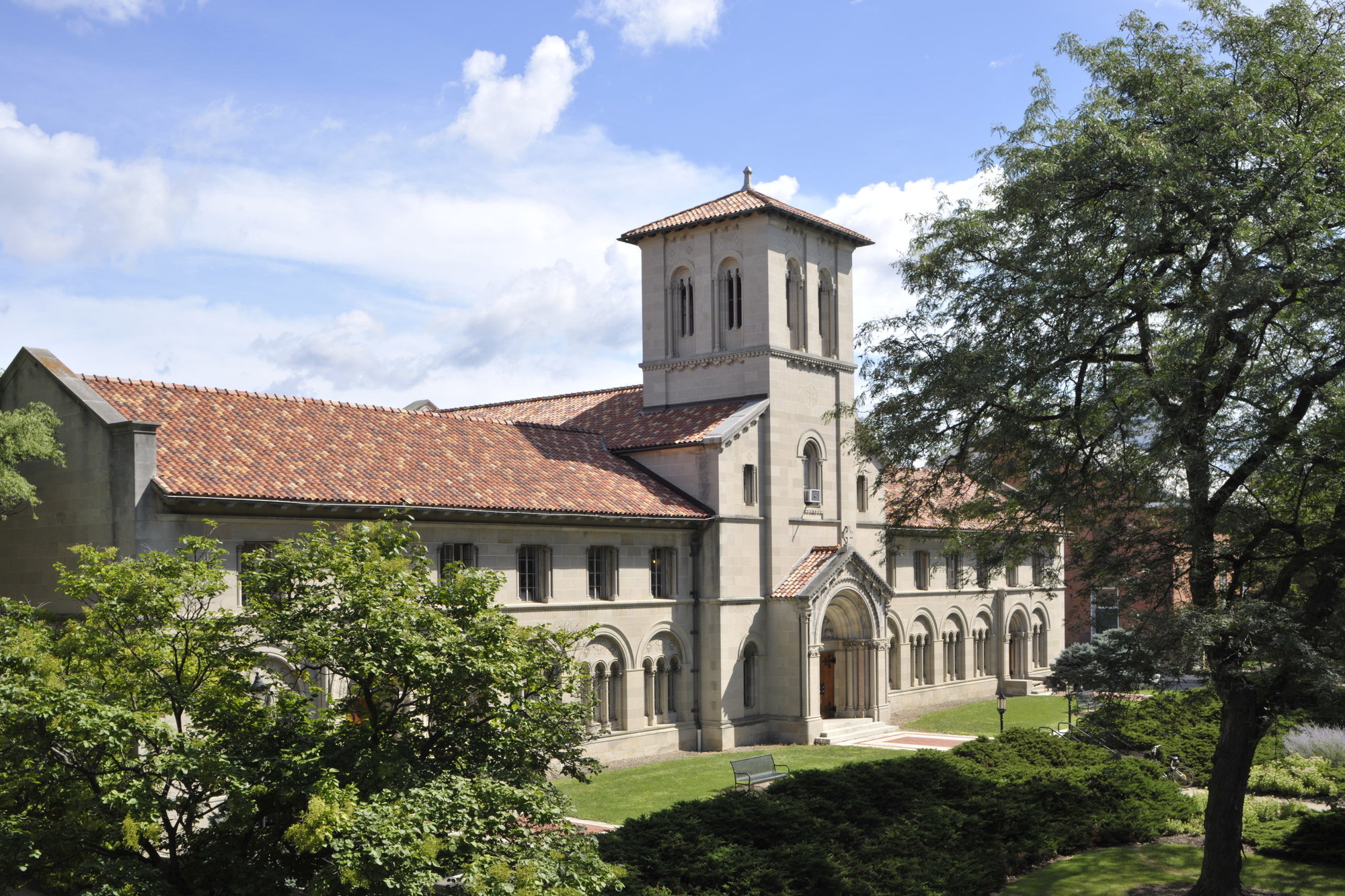Oberlin College ordered to pay $44.4 million damages in libel case brought by small business
Bosworth Hall on the campus of Oberlin College in Ohio. Photo from Oberlin College.
In a closely watched case, a jury in Ohio has awarded a staggering $44.4 million in punitive and compensatory damages to a family-owned bakery that sued Oberlin College for libel, igniting a fierce debate about free speech on college campuses.
After a trial that lasted more than six weeks, the Lorain County jury last Thursday awarded punitive damages of $33.2 million on top of an earlier $11.2 million compensatory award to the owners of Gibson’s Bakery. They sued the college and the dean of students after a shoplifting incident led to allegations the business practiced racial profiling. The allegations prompted student protests, which the family said was supported by the college.
“People have no idea on how much stress this has had on our family and business for almost three years,” David Gibson, the 64-year-old business co-owner said after the punitive verdict. “But from the beginning, we just didn’t understand why they were punishing us for something we had nothing to do with.”
Oberlin lawyers would not comment, but attorney Rachelle Kuznicki Zidar told the jury in her closing argument during the punitive damages phase that the college was making changes in its admissions and student educational programs, and that those changes would make them more respectful toward local community businesses. “We cannot change the past, we can learn from it,” Zidar told the jury.
The case addressed libel and defamation claims against the school in which the plaintiffs said the school used its powerful “support” to “aid and abet” the libelous material that the small business was racist.
“Why is the country watching you?” plaintiffs’ attorney Lee Plakas asked the jury during his punitive damages closing argument. “Because the country agrees that what happened to the Gibsons should not happen to anyone, but could happen to everyone … Colleges are watching us and you. Because they all know the way colleges are run will be affected by your decisions.”
The punitive damages award was based on whether the school’s actions had “ill will” and “malice” as the primary driver of their actions against the bakery.
The jury also instructed the judge to have Oberlin College pay the attorney fees for the Gibsons, which could add another $5 million to $10 million to the defendants’ bill.
Under Ohio law, the punitive damages are capped at no more than double than the amount awarded in the first phase of compensatory damages. There are exceptions the judge can consider, but the actual amount of punitive damages will most likely be reduced to $22.4 million.
Floyd Abrams, a New York City lawyer specializing in First Amendment issues, said the verdict represented “a double-barreled threat to free speech on campus.”
“The notion that uninhibited student speech can lead to vast financial liability for the universities at which it occurs threatens both the viability of educational institutions and ultimately the free speech of their students,” he told the New York Times.
William Jacobson, a law professor at Cornell University, put it this way: “This historic ruling confirms that no institution, no matter how powerful, may baselessly smear individuals or businesses in pursuit of their of their political or social agenda, and even a college as influential as Oberlin may be held accountable for its actions in a court of law.”
But, in many ways, this case wasn’t about freedom of speech and constitutional law as much as many had thought. Lorain County Common Pleas Judge John. R. Miraldi kept the focus of the trial limited in evidence before the jury. The issue was not about the student protests at Gibson’s Bakery in November of 2016, but how the school supported the protesters in various ways that cut the business’s earnings from about $900,000 in 2016 to a projected $433,000 this year.
A key part of the case was the judge’s jury instructions that they could consider Oberlin College as a support group, and by supporting the protest—and by helping to put out flyers that called Gibson’s racist—it helped cause the economic and reputation damage.
In a 2003 case, Cooke v. United Dairy Farmers, an Ohio appeals court ruled that “As a general rule, all persons who cause or participate in the publication of libelous or slanderous matter are responsible for such publication. Hence, one who requests, procures, or aids or abets, another to publish defamatory matter is liable as well as the publisher.” This case was cited by the judge in rulings on various motions, and he noted “aiding and abetting” in jury instructions.
In an email to alumni, Oberlin President Carmen Twillie Ambar wrote: “We are disappointed in the jury’s decisions and the fragmentary and sometimes distorted public discussion of this case. But we respect the integrity of the jury, and we value our relationship with the town and region that are our home. We will learn from this lawsuit as we build a stronger relationship with our neighbors.”
Daniel McGraw is a freelance writer living in Lakewood, Ohio. Find him on Twitter at @danmcgraw1.




